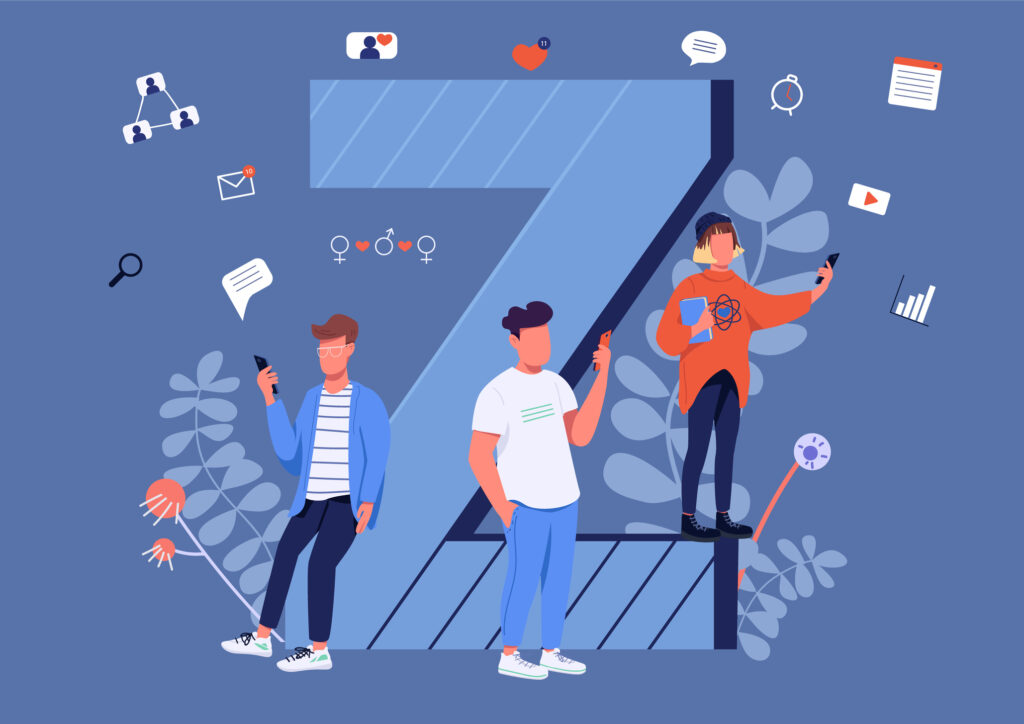We are witnessing some of the biggest changes to the world of work in the modern age.
Some organisations are insisting their employees continue to work from wherever the workplace is situated, and fighting hard against any modernisation, including hybrid or remote working.
Others are doubling down, allowing employees to work when they want and where they want, including working from abroad, seemingly willing to embrace any new suggestion put forward to evolve the way we work.
Whilst the pandemic was the catalyst for many organisations to experiment with new ways of working, it’s worth considering what might be driving this pressure to conform or resist, what might be perceived by some as anarchic ways of working.
Gen Z will humanise the workplace
Gen Z employees are the first generation to grow up fully immersed in the digital world, not having to adapt to the introduction of any major digital developments, unlike every other generation before them.
They spend a vast amount of their time connected online, and this is their main go-to, when needing personal connection, information, advice, or finding solutions to challenges they face in their lives.
Not phased by disruption
Something we need to appreciate about this generation is that many of them feel they have nothing to lose.
They entered the world of work off the back of a recession, into the disruption of the pandemic, and experiencing a non-conventional introduction to work – all they know is disruption.
Whilst this might explain their need to constantly ask ‘why’, when questioning how the world of work works, they are not only asking to understand, but to challenge.
Gen Z employees are the first generation to grow up fully immersed in the digital world, not having to adapt to the introduction of any major digital developments, unlike every other generation before them
Work smarter not harder
Due to their holistic and globalised view of the world, this generation has opinions that many other generations either lacked, or lacked the confidence to share amongst established and older workers.
They are unafraid to debate the merits or otherwise of various points of view, and bring to the workplace a mindset of what they see as common sense, challenging the ‘stupidity’ of how we work, and how much harder we have made working, which is negatively impacting on our productivity, wellbeing, and finding our purpose.
What is the purpose of work?
For many senior leaders, work has been the most important aspect of their lives, overriding time with family.
The need to provide financial stability for their families meant many were working so hard that they became disconnected from them, with Baby Boomer divorce rates now at three times greater than the generation before them.
Gen Zers know many of them will be unable to buy their own home, will be less well off, and have little in terms of pension compared to previous generations, but whilst they would love the high salaries, there’s a line they are unwilling to cross.
They won’t allow work to become all consuming, impacting on their ability to seek pleasure and joy in living, and working with employers that conflict with their personal values.
This shouldn’t be confused with Gen Zers having any less commitment to their organisation – they are highly committed; however, work needs to be on their terms of when, and how they undertake it.
Gen Zers want to do meaningful work, in meaningful ways, calling out ways that no longer work and questioning whether they ever did.
Due to their holistic and globalised view of the world, this generation has opinions that many other generations either lacked, or lacked the confidence to share amongst established and older workers
They challenge; not to provoke, but to improve
Gen Zers are willing to call out that the ‘emperor has no clothes on’, something many senior leaders wouldn’t have dared raise when joining the world of work.
But to challenge, one must create an environment where you are willing to be challenged.
This takes psychological safety to a whole new level, where culturally we make it ok to say how you feel, because we are so committed to work.
It’s worth noting that this doesn’t mean not conducting ourselves with respect, which is how previous generations may have interpreted anyone speaking out, but to challenge, some would argue, is showing greater respect, and a commitment to making the organisation even better.
Gen Z will teach leaders to be agile and flexible
Organisations want to drive greater innovation and creativity, ensuring they stay agile and relevant.
Gen Zers want meaning, purpose and to enjoy their lives, inside and outside of work, impacting positively on their wellbeing and relationships.
There’s an entrepreneurial spirit that Gen Zers bring to the workplace, and it’s driven out of finding solutions to the challenges they face.
Gen Zers want to do meaningful work, in meaningful ways, calling out ways that no longer work and questioning whether they ever did
A new way to work?
There’s a phrase many of us have come across: ‘with breakdown you get breakthrough’. With little to lose, and to better their lives, they will need to find another way of working that works for them.
This curiosity and exploratory mindset, combined with an entrepreneurial spirit could help senior leaders re-evaluate the way their organisations work.
If you enjoyed this, read: Are we too woke?










